On 8th May, 2021, Minahil Khan, senior research fellow at the Research Society of International Law sat down with Madeeha Ansari, the founder of Cities for Children, to discuss the state of street children in Pakistan on the fifth episode of ‘The Right’ podcast series. The discussion attempted to explore the challenges faced by street children, what needs to be promised to them and how organisations can move towards fulfilling those commitments.
“The approach that is taken towards street children is either as victims or delinquents…viewing them as rights-holders is going to take a whole shift in perspective.”
Cities for Children’s work
The first part of the conversation was an introduction to Cities for Children’s work. Cities for Children was set up with a rights-based approach, to support organizations working with street-connected children and build programs around learning and wellbeing.
CfC’s work to support the Right to Childhood knits together three strands of child rights:
- The Right to Read – through programmes like Seekho Sikhao Saathi (Partners in Learning), with Big Partners teaching Little Partners within their communities and forming beautiful bonds, throughout the COVID-19 school closures.
- The Right to Play, especially through structured recreation and community volunteering programmes like Hansti Basti (Happy Hoods).
- The Right to Feel Safe – psychosocial support and positive mental health. Most recently, CfC’s Maar Nahi Pyaar (Care not Scare) campaign was launched around the time the Anti-Corporal Punishment legislation was being pushed in the Islamabad Capital Territory. Maar Nahi Pyaar resources provide practical alternate strategies and positive caregiving tools that parents can use in place of corporal punishment.
Street Children and COVID-19
“There are some rights that children are entitled to no matter who they are and where they come from.”
The conversation then turned to how pandemic has had a disproportionate effect on communities in urban poverty, leading to an increasing number of children on the streets. There are several great elements to social welfare programmes like Ehsaas, including incentivising parents to send children – especially girls – to school. But when it comes to “street-children,” there is not enough conversation about who they are and the communities they come from, which means they often fall through the cracks.
A dominant narrative is that street children are sent by gangs or mafias – which may be true in some cases, but it is important to understand individual stories and the multiple identities that a child may have. Whether from a refugee, internally displaced, stateless or migrant community, lack of formal documentation often impedes access to rights. Lack of legal rights also makes street children vulnerable to exploitation and harassment.
Madeeha spoke about the massive impact of Covid-19 pandemic and learning losses for children, especially for those on the other side of the digital divide. She emphasized that now is the time to be innovative – benchmarks, especially around assessments, need to shift to give children the support and reassurance they need when they are eventually coming back into schools.
Policy-making with children
“It’s not just about asking (children and their families) what they want, but saying ‘How can we support you?’”
Article 12 of the UNCRC says that children have a right to be heard in matters concerning them – and in order to make policies that work, it is not only important to consult them but also understand where they come from. Madeeha highlighted the importance of the UN General Comment No. 21 on Children in Street Situations for organisations working in this area, and stressed on the need to incorporate street children’s voices in all discussions about them
“How is it that we can support street children to go to school, and remove the barriers they face? How is it that we can better protect them and their best interests? How can we take this opportunity to build strong child protection systems?”
The Rights Podcast Series explores issues related to human rights in Pakistan. It is an initiative of the Centre for Human Rights (CHR) at the Research Society of International Law, Pakistan (RSIL), an independent, non-partisan think tank based in Pakistan. The Centre for Human Rights (CHR) is a dedicated Centre conducting research on international and domestic human rights issues, raising awareness and building State capacity in Pakistan.
The podcast can be heard on the link given below.
